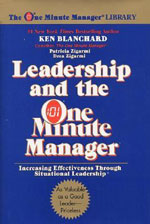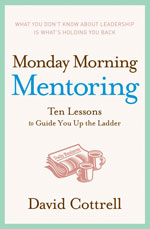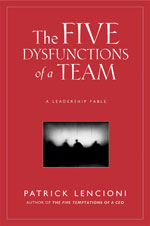 Persistence is one of the most important attributes you find in any successful person, whether he or she is an athlete, a student, or a businessperson. Over the past two weeks, we have been discussing why we need to persist to capture success in any area of our lives along with the importance of a healthy response to setbacks and failures as we travel the road to success.
Persistence is one of the most important attributes you find in any successful person, whether he or she is an athlete, a student, or a businessperson. Over the past two weeks, we have been discussing why we need to persist to capture success in any area of our lives along with the importance of a healthy response to setbacks and failures as we travel the road to success.
As we continue to explore the subject of persistence, I want to discuss another of my firm beliefs: the most important trait you can posses as you persist in your quest for success is optimism. The online Oxford Dictionary of English defines optimism as “hopefulness and confidence about the future or the successful outcome of something.” When we are optimistic, we increase our likelihood of persisting and committing to our goals and also improve our ability to tolerate disappointments and challenges.
To remain optimistic, you must control your mind. The attitude of winning and being successful will always require increased effort, commitment, and persistence, especially when faced with difficulties or challenges that could jeopardize the chance of success.
Someone who is characterized as an optimist has a belief that things will go well, and that tendency to be optimistic is a habit that is developed over time. Whereas a pessimist responds to obstacles by withdrawing and underachieving, an optimist will always respond by developing goals, coming up with a strategy, and executing the plan. In summary, optimism is a healthy practice of creating a vision of our desired end results, followed by putting in more effort, which leads to driving ourselves to better outcomes.
To become more persistent, we need to train our optimism. We need to train ourselves to focus on the positives. Your current attitudes are not predetermined or inevitable. The way to change them is to behave the way you’d like to be. In other words, fake it until it becomes the real you. An acquaintance of mine who struggles with optimism decided to keep a log each day and recorded a minimum of three good things that happened to him every day. He found that this exercise really helped him increase his level of optimism.
Optimistic people ask themselves the following questions when dealing with a challenge: “What do I control? What can I do to improve my situation? What can I learn from this experience?” People who are optimistic focus on what they can control, and they don’t allow themselves to slip into helplessness. Optimists persist, and, as a result, they tend to succeed.
Let’s use the example of personal health—something we can all relate to. Optimistic thinking leads to better health because people who think optimistically believe that they can take charge of their health and have a positive impact on it. When a doctor tells us we need to lose weight and exercise more, we can think optimistically by saying to ourselves, “He’s right. I haven’t been eating well or exercising. I’m going to start eating foods that are better for me and working out 4 – 5 times a week.”
Our optimistic thinking directs us to start making positive changes because we believe we control our health. So we set goals, make a plan, and act. As a result, we experience a positive self-fulfilling prophecy.
Now, think about someone you know who is pessimistic and is dealing with health issues. This person receives the same recommendation from the doctor; however, the pessimistic person says to himself or herself, “What’s the point? I never stick to my diets or exercise plans. There’s no sense in trying to change my habits…I’ll just end up quitting in a week!” Pessimistic thinking leads to helplessness, which leads to continued bad eating and further poor health. Unfortunately, this person just created his or her own negative self-fulfilling prophecy.
I’d like to end this post by telling you a true story. On February 19, 1945, a crocodile attack claiming many lives occurred during the Battle of Ramree Island in what is now Burma. Nine hundred Imperial Japanese soldiers, in an attempt to retreat from the Royal Navy and rejoin a larger battalion of Japanese Infantry, were forced to cross 10 miles of mangrove swamps containing thousands of crocodiles. By the next morning, of the original 900, only 19 had succeeded.
We each have mental swamplands to cross on the journey to success—swamplands filled with crocodiles lurking in the forms of pessimism and negative thoughts. These self-limiting beliefs are hungry, always poised to attack your dreams. They will eat your aspirations alive—but only if you let them! Stay optimistic!





















